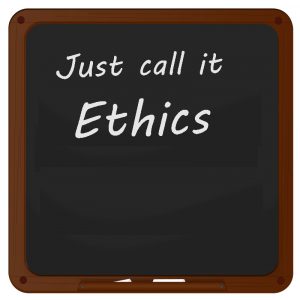Ethics “restrictions” help big lobbying interests
 Much has been said about the deceptive Issue #3 of 2014, which is now Amendment 94 to the Arkansas Constitution.
Much has been said about the deceptive Issue #3 of 2014, which is now Amendment 94 to the Arkansas Constitution.
While it was promoted as an ethics amendment, the amendment was a Trojan Horse because it included provisions to substantially weakened Arkansas’ term limits and to secure dramatically higher salaries for legislators. The salary increases also meant dramatic increases in legislator pensions and the pensions of other state elected officials, and it lets them keep much more of surplus campaign funds for a future campaign or for use as “office expenses.”
At least we got ethics reform. Right? Not exactly. What we got was changes in the ethics law designed to increase the influence of big business and big lobbyists.
Let’s look at two major ethics provisions in Amendment 94 and how we got scammed even by the ethics provisions.
- Prohibit lobbyist from buying food and drink for legislators, except… The limit on the use of food and drink in lobbying was NOT designed to reduce lobbyist influence, but to ensure big business interests can carry on while restricting small groups and their lobbyists.
Before the amendment, a lobbyist could buy a legislator a burger while discussing legislation. The amendment stepped in to prohibit this, which sounds good to me.
But, the amendment included an exception to allow a lobbyist to wine and dine legislators if the lobbyist invites a full committee or the entire Senate or House of Representatives. It also allows lobbyists to wine and dine legislators when they attend national or regional meetings.
A person who has to register as a lobbyist because he expends $400 for lobbying over a three-month period is not going to be able to buy fancy meals for a whole committee. But, the lobbyists of big businesses have no problem spending thousands of dollars on legislator drink and meals.
Here is one example of a dinner listed on a lobbyist report which was chosen at random. March 2, 2015 Arkansas Blue Cross Blue Shield sponsored a dinner for the Senate Efficiency Committee. The committee has twelve members. The Cost $2,288.65.
If this makes you angry, you may be thinking let’s pass an initiated act to impose a “no cup of coffee rule”. Sorry, the legislature fixed it where the people can only do that by changing the constitution. The legislature could impose the no cup of coffee rule by a 2/3rds vote of each house, but don’t hold your breath.
- Prohibiting businesses from making campaign contributions. The Amendment prohibits businesses from making campaign contributions to a candidate. This nice sounding provision merely discourages small businesses from supporting candidates while big businesses operate in their normal manner – through Political Action Committees (PACs). Every statewide official and every legislator knows big business campaign contributions haven’t diminished at all.
Big business has lots of experience making contributions to specific candidates by donating the money to one or more PACs that then makes contributions to candidates. Some small business owners make contributions to PACs but they are far less likely to do so because of their independent nature. The few conservatives who try to play the PAC game are demonized by those who freely take from the limitless well of big business funded PAC’s.
The Amendment was NOT about restricting business contributions. It was about discouraging small business owners from financially supporting candidates like big businesses do.
Another ineffectual ethics provision in the Amendment
Another provision of the Amendment should be mentioned simply because it has already shown to be largely ineffectual.
The Amendment extended from one year to two years the ban on legislators becoming lobbyist after they leave the legislature. This is actually a good addition to the ethics law but it is included here because once again big business gets around the rule so easily.
For example: John Burris who lost to a political novice in 2014, waited the two-year period before becoming a lobbyist. Although he had to wait two years to register, he was able to immediately become a “political consultant.” Essentially it is the same thing as a lobbyist in that he could work on the same issues for the same business, craft legislation, explain the legislation to legislators while not saying, “Vote for this legislation.” His political consultant work for Centene was expanded to include the title “lobbyist” once he was allowed to register.
Bottom line
Issue #3 of 2014 (Amendment 94) wasn’t just about using deception to benefit legislators and other politicians. It was also about using deception to help big business interests strengthen their control.
Get ready! Senator Jon Woods, who was the lead sponsor of Issue #3, has an even worse constitutional amendment waiting for your vote in November and the amendment will pick your pocket if passed. More about that later.
